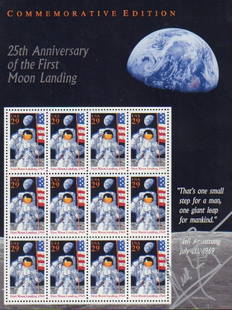
Pacifist Noah Worcester 2x Signed ALS to Fellow
Similar Sale History
View More Items in StampsRelated Stamps
More Items in Stamps
View MoreRecommended Coins, Currency & Stamps
View More






Item Details
Description
A 1p autograph letter signed by Noah Worcester (1758-1837), the Unitarian minister and celebrated pacifist, as "N Worcester" near the center. Written in Brighton, Massachusetts on December 11, 1824, including an extensive postscript at bottom. The reverse is an integral address leaf fully engrossed and free franked by Worcester as "N Worcester PM" in the postage section (Worcester served as Postmaster of Brighton after 1817.) Docketed verso and bearing remnants of the original red wax seal. Expected wear including paper folds. Unevenly toned at center. The left edge bears a thin vertical strip of shiny tape, and is reinforced by a narrow piece of paper verso. Else very good to near fine. 7.625" x 11.625."
Noah Worcester, who had been a Unitarian preacher earlier in his career, wrote this letter to Reverend Joseph Allen (1790-1873) of Northborough, Massachusetts, located about 20 miles southwest of the Boston suburb of Brighton. The main body of the letter pertains to a practical matter, that of receiving copies of an unidentified journal, probably "The Friend of Peace," a pacifist journal edited by Worcester. Worcester's lengthy postscript is much more abstract, and includes his thoughts about impending war in Europe.
Worcester wrote in part (with paragraph breaks added to improve legibility):
"P.S. I have been dissatisfied with the conduct of the Holy Alliance, but I have seen no ground to accuse them of insincerity in possessing a desire to preserve the peace of Europe. The horror which accompanied and followed the French Revolution might naturally have excited in the minds of those sovereigns an awful dread of the reoccurrence of such scenes; and they have acted on the principles, that the revolutionary spirit should be suppressed, and that preparations for war, are the best means of preventing it. The latter I believe to be as false as it is common.
I also believe that the best method of preventing violent reactions is, for government to show the spirit of benevolence toward their subjects, and a disposition to improve their condition as rapidly as light shall prevail. The people on the continent of Europe are not yet prepared for such liberty as we enjoy. I always doubted the sureness of Naples Spain and Portugal. We had barely light enough to know what to do with liberty…"
The Holy Alliance was a political pact formed in 1815 between Austria, Russia, and Prussia following the Napoleonic Wars, and its policies greatly informed European politics until the onset of the Crimean War. The three eastern European nations united under a common banner: to safeguard monarchical control. In this way, the Holy Alliance was a conservative force that preserved the status quo. (After the United Kingdom and France joined this alliance system, it became known as the Quintuple Alliance.)
Worcester mentions Spain, Portugal, and Naples in the letter to Reverend Allen. He may have been referring to numerous instances of foreign intervention in other nations' politics during the last several years. In 1823, the French had engaged in a 7-month-long campaign to bolster the Spanish crown following a short-lived liberal period of domestic government. And in 1821, a group of pro-Italian unification revolutionaries known as the Carbonari had menaced Spanish control over Naples, prompting the Austrian military to intervene.
In the main body of the letter, Worcester tells Allen that he is sending him multiple copies of issue numbers 37 and 38 of an unknown periodical, almost certainly "The Friend of Peace," the quarterly magazine published under the auspices of the Massachusetts Peace Society, which Worcester edited. Worcester had founded the Massachusetts Peace Society in 1815, and served as the group's secretary between 1815-1828. Worcester edited "The Friend of Peace" between 1819-1828.
Noah Worcester is considered one of the founding members of the pacifist movement in the United States. His seminal essay, "A Solemn Review of the Custom of War" (1814), is still considered one of the most succinct and eloquent statements of peace literature.
This item comes with a Certificate from John Reznikoff, a premier authenticator for both major 3rd party authentication services, PSA and JSA (James Spence Authentications), as well as numerous auction houses.
WE PROVIDE IN-HOUSE SHIPPING WORLDWIDE!
Buyer's Premium
- 25%
Pacifist Noah Worcester 2x Signed ALS to Fellow
Shipping & Pickup Options
Item located in Wilton, CT, usPayment

Auction Curated By

























![[Presidential] Lincoln, Abraham: Signed Revenue Service Commission: [Presidential] Lincoln, Abraham: Signed Revenue Service Commission Lincoln, Abraham Signed Revenue Service Commission Washington (D.C.), October 9, 1861. Partially-printed commission on vellum, signed](https://p1.liveauctioneers.com/65/307841/164642790_1_x.jpg?height=310&quality=70&version=1698859037)












































